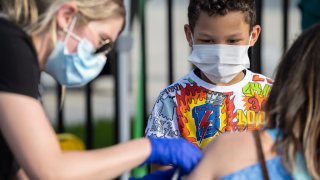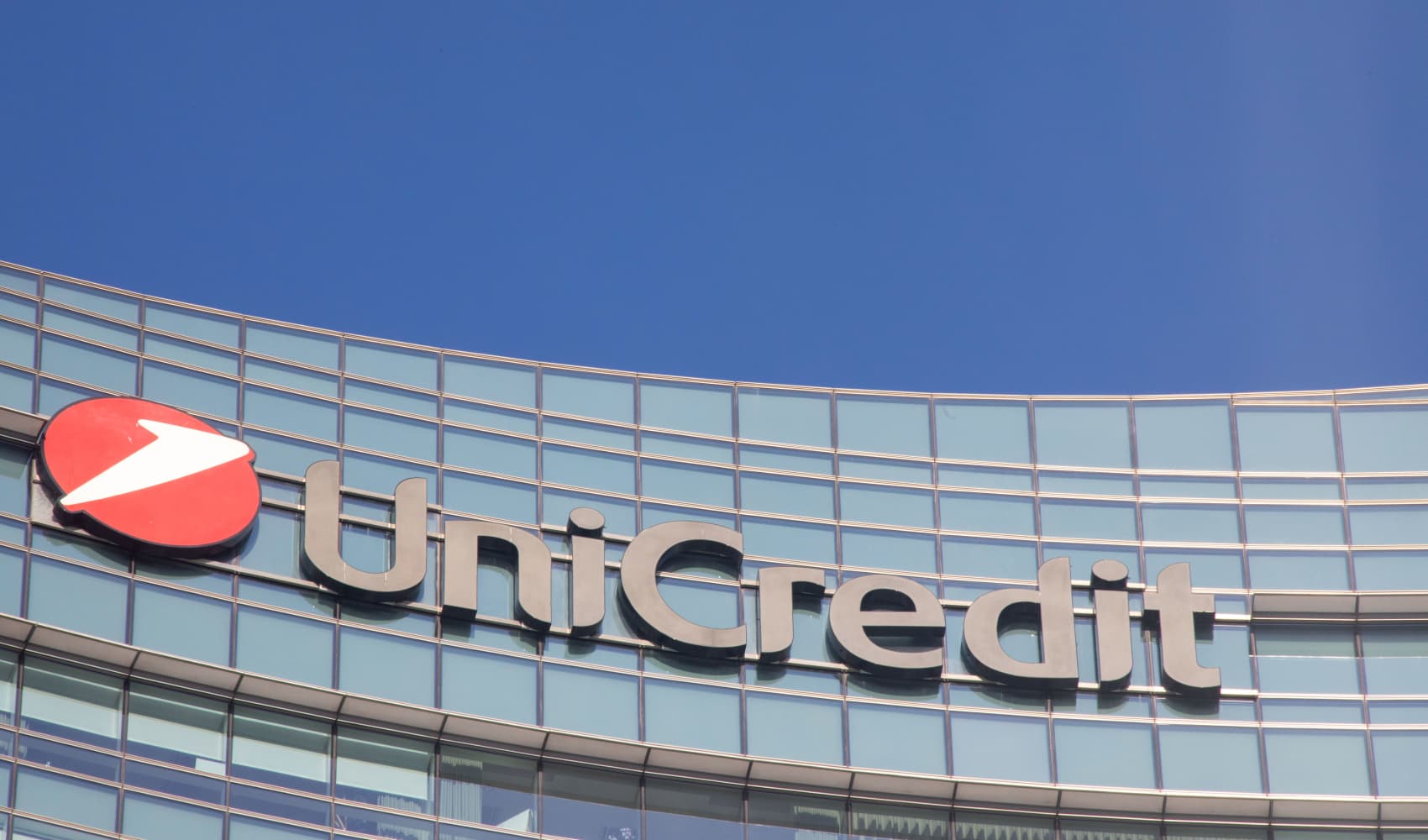
- The Centers for Disease Control and Prevention said Wednesday it recommends expanded usage of Pfizer and BioNTech's Covid-19 vaccine for 12- to 15-year-old kids.
- The recommendation from CDC Director Dr. Rochelle Walensky comes hours after the Advisory Committee on Immunization Practices issued an endorsement, which was adopted 14-0 with one abstention.
WATCH ANYTIME FOR FREE
Stream NBC10 Boston news for free, 24/7, wherever you are. |
The Centers for Disease Control and Prevention on Wednesday signed off on expanded usage of Pfizer and BioNTech's Covid-19 vaccine for 12- to 15-year-olds, clearing the way for pediatricians to start giving out the shots across the U.S. as early as Thursday.
The recommendation from CDC Director Dr. Rochelle Walensky comes hours after the Advisory Committee on Immunization Practices endorsed the change, which was adopted 14-0 with one abstention. Two days earlier, the Food and Drug Administration approved Pfizer and BioNTech's request to allow their shot to be given to young teens on an emergency use basis.
Get updates on what's happening in Boston to your inbox. Sign up for our News Headlines newsletter.
President Joe Biden called the endorsement "one more giant step in our fight against the pandemic."
During Wednesday's meeting, CDC officials said there were no serious adverse events associated with the Pfizer-BioNTech shot in 12- to 15-year-olds out of more than 2,000 children in the companies' clinical trial. Most vaccine recipients, 91%, experienced side effects of some kind.
The most commonly reported side effects were pain at the injection site and in joints and muscles, tiredness, headache, chills and fever, Pfizer scientist Dr. John Perez told the panel. With the exception of pain at the injection site, more adolescents reported side effects after the second dose than after the first. Side effects usually resolved within one to two days, he said.
Money Report
The CDC panel's endorsement comes ahead of summer camp season and the Fourth of July — a date the Biden administration is hoping will mark a turning point in the nation's battle against the virus. More than 3.3 million people across the world have died from Covid-19 so far, almost 600,000 of them in the U.S., according to data compiled by Johns Hopkins University.
After Wednesday's vote, several members expressed excitement that members of their own family could now get vaccinated. Others noted that access to the shots will help kids return to some normalcy after suffering a year of mental and social challenges due to the pandemic.
"My husband and I are vaccinated. My 16-year-old is vaccinated. Now my 12- and 15-year-olds will be in line," ACIP member Helen Keipp Talbot said.
The panel's recommendation will "help us close a difficult chapter for many kids & families," Andy Slavitt, the White House's top official on the nation's Covid-19 response plan, said over Twitter.
Vaccinating children is seen as crucial to ending the pandemic. The nation is unlikely to achieve herd immunity — when enough people in a given community have antibodies against a specific disease — until children can get vaccinated, health officials and experts say.
Children make up around 20% of the total U.S. population of 331 million, according to government data. Between 70% and 85% of the U.S. population needs to be vaccinated against Covid to achieve herd immunity, experts say, and some adults may refuse to get the shots. More experts now say, though, that herd immunity is looking increasingly unlikely as variants spread.
As of Tuesday, more than 150 million Americans age 18 and older have received at least one dose, according to data compiled by the CDC. Roughly 115 million American adults are fully vaccinated, according to the agency. About 13% of adults say they definitely won't get a vaccine while 21% say they will "wait and see" or will get one only if required, according to the Kaiser Family Foundation.
CDC officials told the panel that research shows vaccine hesitancy among parents, with only about 46% to 60% who said they wanted to get their kids vaccinated. Reasons for not getting the shots included concerns about safety, the time it took to develop the vaccine and not having enough information, officials said.
Acting FDA Commissioner Dr. Janet Woodcock on Monday assured parents that the U.S. agency "undertook a rigorous and thorough review of all available data" before clearing it for use in younger teens.
CDC official Dr. Megan Wallace said Wednesday that serious adverse events were more common among vaccine than placebo participants, 0.4% versus 0.2%, but none of them were attributed to the shots.
Perez said one adverse event that was associated with the vaccine was lymphadenopathy, which is a swelling of lymph nodes. In the clinical trial, there were nine cases in the vaccine group, with seven related to the shot. Two cases were in the placebo group, he said. There were no cases of anaphylaxis, according to a slide presented at the meeting. There were also no cases of Bell's palsy — a rare issue that's cropped up in some adult vaccine recipients — or blood clots, Perez said.
The vaccine was found to be 100% effective in the clinical trial of 12- to 15-year-olds. No deaths were reported. More serious side effects were more common in the vaccine group, with about 11% reporting things such as pain at the injection site that prevented daily activity, severe fever, headache or muscle pain.






